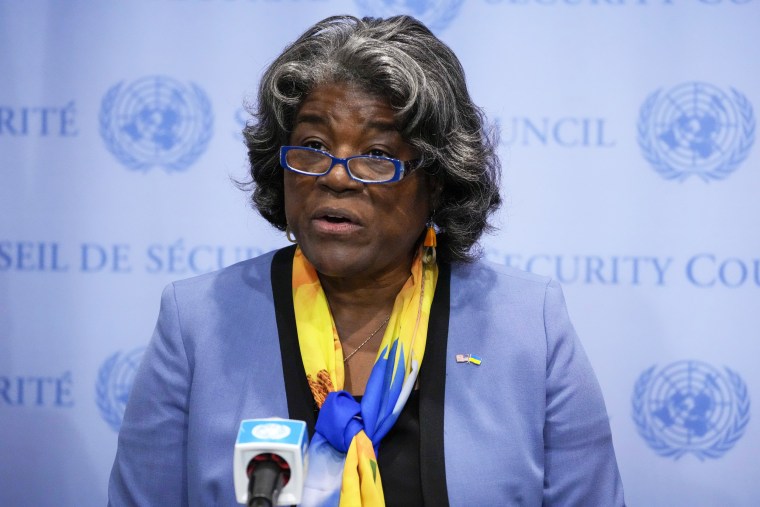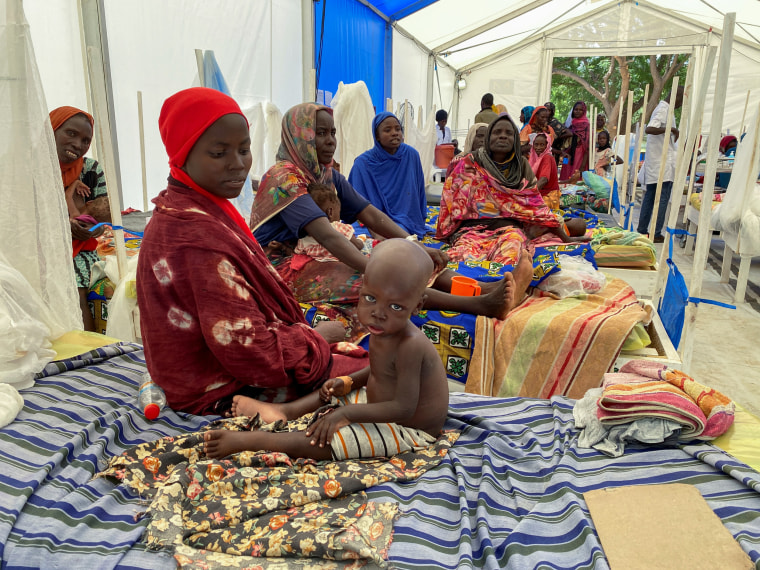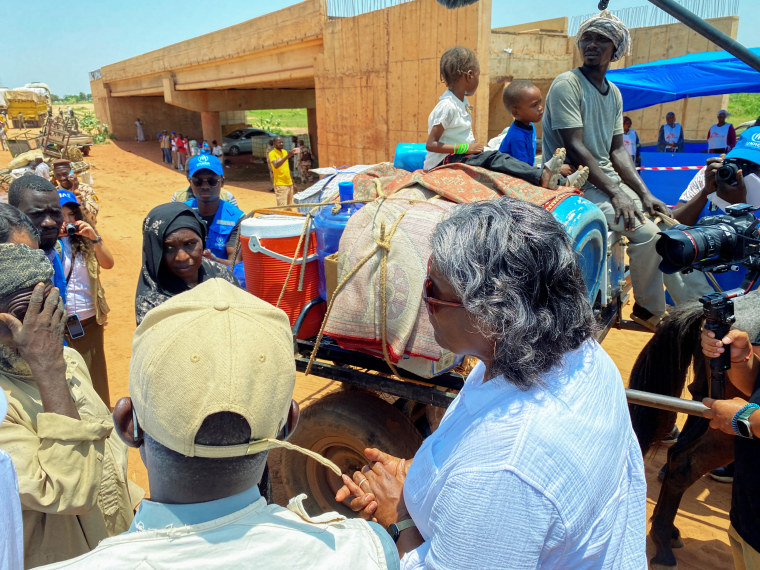ADRÉ, Chad — The U.S. will send $163 million in response to the humanitarian crisis caused by Sudan's civil war, U.N. Ambassador Linda Thomas-Greenfield announced this week as she toured a sprawling refugee settlement housing 200,000 civilians who have fled the violence.
Thomas-Greenfield also announced new sanctions against the leaders of one of the two main warring parties.
“What needs to happen is that the two warring parties have to stop. They have to stop fighting so that people can find peace,” Thomas-Greenfield told NBC News in Chad on the border with Sudan.
The amount of aid Thomas-Greenfield unveiled Wednesday will be in addition to $547 million the U.S. had committed to the emergency response this fiscal year.
The U.N. says it needs more than $1 billion in additional aid to support the 1 million people who have evacuated Sudan, including nearly 400,000 to neighboring Chad.

The ambassador met with some of those refugees, largely women and children, including many suffering from malnutrition. Some are mothers who are unable to nurse, while others are dying of hunger. Doctors Without Borders, also known as Médecins Sans Frontières, has established a makeshift hospital at the camp to care for the sick.
“It is overwhelming. I think that’s the only word that I can use,” Thomas-Greenfield said. “I see those little children. I saw a 6-month-old who looked like a newborn. And I was told by the doctors that actually she was doing better, showing that what we do actually saved lives.”
Many in the camp had fled “because they feared they had seen their friends raped, they had seen men killed, and they feared for their lives,” she said.

The refugees are fleeing a rapidly worsening humanitarian crisis, with Sudan’s armed forces fighting against the Rapid Support Forces (RSF) paramilitary group and their affiliated militias. Fighting broke out in April, a few years after both sides jointly deposed longtime dictator Omar al-Bashir in a coup.
The U.S., the U.N. and human rights groups say that sexual violence is being used as a weapon of war in the conflict. The number of victims of gender-based violence is believed to have been grossly underreported, according to a U.S. official.
The U.N. has also authorized the International Criminal Court to investigate whether a genocide is unfolding in Sudan, with reports of massacres and ethnic cleansing mainly carried out against the Masalit tribe and other non-Arab communities.
In June, Sudan’s doctors’ union reported that more than 1,100 people had died in El-Geneina, the capital of West Darfur, in just the first two months of the civil war, according to Human Rights Watch.
Thomas-Greenfield announced sanctions against a leader of the RSF, Abdelrahim Hamdan Dagalo, as well as visa restrictions for Dagalo and the RSF’s commander in the West Darfur region of Sudan, where the U.S. is accusing the RSF of engaging in ethnically motivated killings and other atrocities. Dagalo is the brother of the RSF’s leader, Mohamed Hamdan Dagalo, known as Hemedti.

Observers warn that the past is repeating itself in Sudan. Nearly 20 years ago, a genocide in Darfur carried out by “Janjaweed” militias against non-Arab tribes killed more than 300,000 people, according to the U.N. Those militias have evolved into today’s RSF.
“You know it did change but now we are seeing the evidence of it starting again,” Thomas-Greenfield said when asked whether anything had changed in the years since. “What we see happening in Darfur right now portends to what we saw happening in Darfur in 2004. So, we have gone backwards in those years. And that is why it is so important that we hold those responsible accountable.”
The International Criminal Court still has outstanding arrest warrants for the accused perpetrators of the genocide in the 2000s. (The U.S. and Sudan are not parties to the ICC.)
Andrea Mitchell and Abigail Williams reported from Chad and Owen Hayes from Washington.

